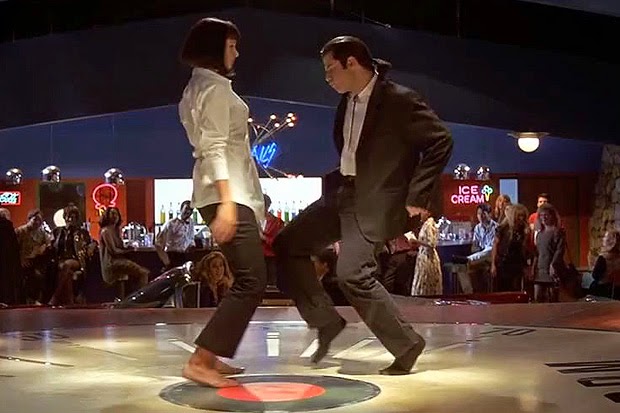One of the unfortunate things I’ve run into from reading tons of amateur screenplays is that screenwriters rarely practice specific skills. Their only practice comes from writing entire scripts and while that’s better than not writing anything, it doesn’t improve the dozens of specific skills you need in order to become a master screenwriter.
When I used to teach tennis, I didn’t just hit balls back and forth with my students and say “Good luck” in their next tournament. We identified specific weaknesss and then drilled those weaknesss. If a player’s backhand sucked, I wouldn’t let him leave the court until he made 50 backhands in a row. If they were double-faulting in their last match, we’d spend an entire lesson hitting second serves.
Writing isn’t any different. If you suck at suspense, you need to practice writing suspenseful scenes. You’re not going to magically get better through writing a bunch of screenplays. You need to target the problem.
One of the best ways to do this is through writing scenes and short scripts. Whatever you’re lousy at, pick a scenario, write a short about it, and practice that weakness. That’s what I want to do with this practice series. Give you a common weak point in amateur writing and have you guys write a scene practicing it. You can link to your scene in the comments and the user who gets the most up-votes wins. Not sure what they win yet, but we can come up with something. If you guys like this series, we’ll continue it. If not, it will go the way of the Sunday Obscure Movie Recommendation.
We’re going to start off big. One of the most egregious mistakes I see amateur screenwriters make is on-the-nose dialogue. This just came up in a script I consulted on two weeks ago (actually, if I’m being honest, it comes up in 70% of the scripts I consult on). The writer had written a funeral scene. And at the wake, the mother and son talked about how much they loved the dead father, how important he was to their lives, the wonderful things he had done in life, how they were upset he didn’t keep in better shape, because maybe then he wouldn’t have died. It was ON THE NOSE to the max.
On-the-nose dialogue is two things. It’s characters saying exactly what they feel. And it’s characters saying what’s already obvious. We’re at a funeral where dad just died. We don’t need three pages of dialogue where mom and son talk about how sad they are that dad died. We already know that because we’re at a funeral and the characters look sad!
So one of the best ways to cure on-the-nose sickness, is with something I call “off-the-nose” dialogue. To practice this, set up an extreme emotional situation. Maybe it’s a funeral. Maybe it’s a break-up. Maybe it’s a promotion. Then write dialogue where the characters are allowed to talk about anything BUT their feelings OR what happened. What you’ll find is that your dialogue comes alive.
So let’s go back to that funeral scene. Instead of the son saying, “Man, I’m so bummed that dad is dead,” have him say, “What’s for dinner tonight?” And go from there. One of the most powerful things you can do in dialogue is to play AGAINST the emotion. So if someone’s died, have your characters joking around. If someone just won the 180 million Powerball, have him complain that now he has to get a new place and he hates the stress of moving.
Now I’m aware that in some cases, your characters WILL say what they’re thinking. And even sometimes in off-the-nose dialogue, you’ll allude to what happened (as our Powerball winner just did with his comment). This isn’t a black and white thing. It has some grey area. But overall, dialogue works best when you stay away from the obvious. And that’s what today’s practice series is about. So remember: Don’t allow the characters to discuss what they’re feeling and don’t allow them to comment on what’s already obvious.
Best short script and/or scene wins. Upvote your faves! Good luck!


